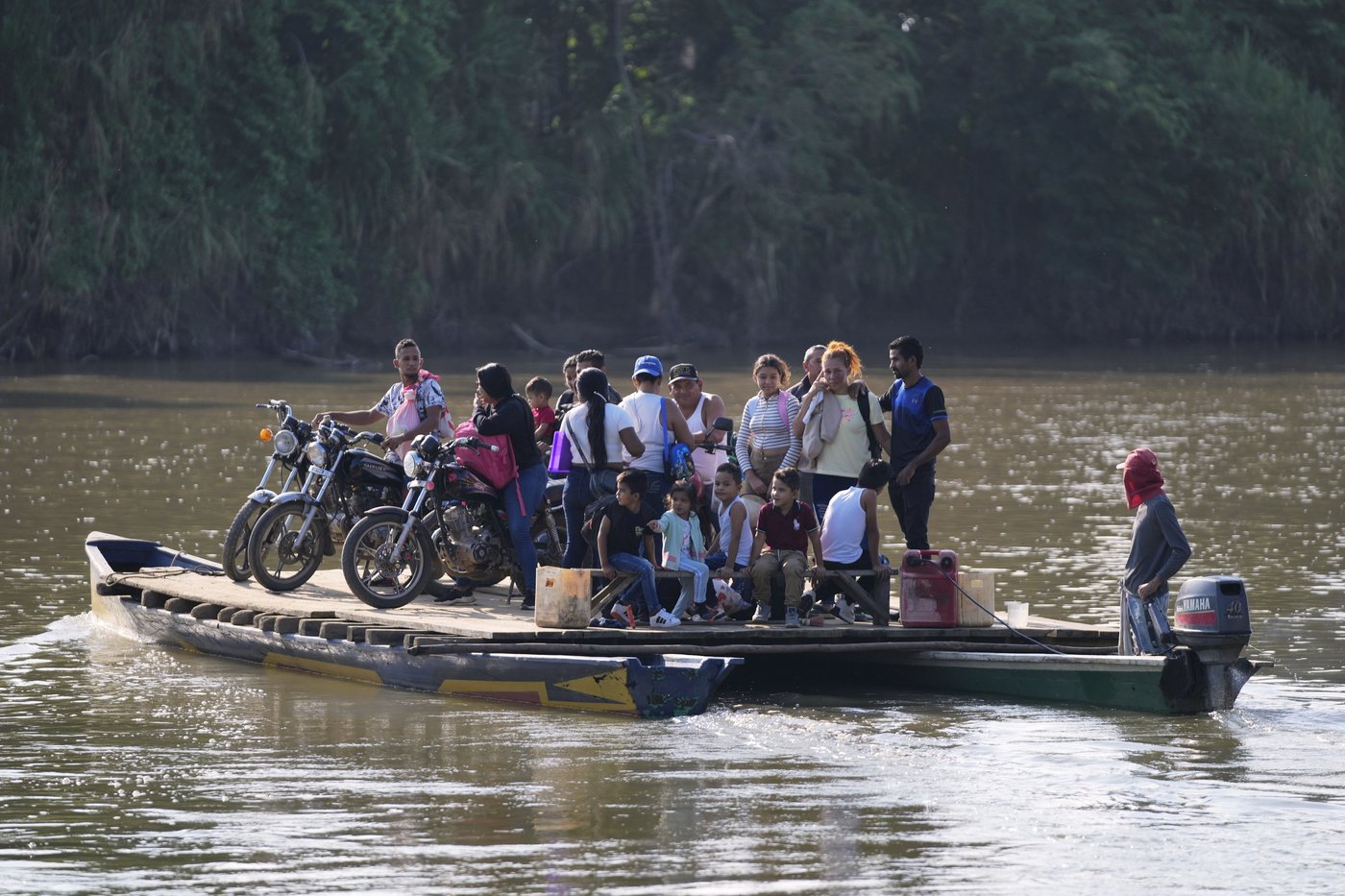Elevate your local knowledge
Sign up for the iNFOnews newsletter today!
[byline]

BOGOTA, Colombia (AP) — Colombian President Gustavo Petro said Monday that he will declare a state of emergency over the guerrilla attacks in the northeast that have killed dozens of people and forced thousands to flee their homes.
In a message on X, Petro said that he will “declare a state of internal commotion,” a measure that enables the executive branch to pass certain kinds of legislation without congressional approval for three months. The measure will go into effect after a decree is signed by the president and his Cabinet, but it can also be invalidated by Colombia’s constitutional court.
Internal commotion decrees were used in the early 2000s by the administration of then-President Álvaro Uribe to increase financing for the military through a special war tax. According to Colombia’s constitution, this emergency measure cannot be used to suspend congress or eliminate civil rights. “I hope the judicial system supports us,” Petro wrote on X.
Earlier on Monday Petro had warned that his nation’s military will take offensive actions against the National Liberation Army after the rebels, known as the ELN, unleashed a wave of attacks in Colombia’s Catatumbo region, in which at least 80 people have been killed.
“The ELN has chosen the path of war, and that’s what they will get,” Petro wrote in a message on X, in which he accused the rebels of turning into a drug trafficking group and compared their methods to those of Pablo Escobar, the infamous cartel leader who bombed government buildings and murdered his enemies by hiring hundreds of hitmen.

Petro, who was a member of a guerrilla group during his youth, initiated peace talks with the ELN in 2022, after promising in his presidential campaign that he could get the rebels to demobilize within three months of taking office.
But talks have stalled over multiple disagreements about how the rebels would disarm and the kinds of economic reforms that the government would implement in exchange for their disarmament. The ELN has also criticized the government for staging separate negotiations with a breakout group in the country’s southwest and angered officials by continuing to kidnap civilians and extort businesses.
On Friday Petro suspended negotiations with the rebels after violence escalated in Catatumbo, a mountainous region that produces around 15% of Colombia’s coca crop and is located along the border with Venezuela.
The ELN, which has an estimated 6,000 fighters, reportedly attacked civilians it accused of being collaborators of a rival group, the FARC-EMC, taking people from their homes and shooting them in the streets, while in rural areas firefights broke out between members of both groups.
In a statement issued on Monday, ELN leader Antonio García said that his organization does not intend to target civilians, but has been going after former rebel fighters who are now collaborating with the FARC-EMC.

Over the weekend, however, thousands of people fled towns in the Catatumbo region, fearing for their lives, including community leaders who had been threatened by the ELN. Among those fleeing were former members of the Revolutionary Armed Forces of Colombia, who demobilized in a 2016 peace deal with the government, and have now been targeted by the ELN.
The United Nations Office for the Coordination of Humanitarian Affairs in Colombia said Monday that the new wave of violence in Catatumbo has displaced 18,300 people, who are staying in shelters and hotels in the cities of Tibu, Ocaña and Cúcuta, where officials have warned of a looming humanitarian crisis.
Sandra Tijaro, a farmer in northeastern Colombia, said in an interview she fled her village on Friday after armed men showed up and told everyone to evacuate. She is now staying with her children at a shelter in Tibu.
“We want the armed groups to think about the welfare of rural folks,” she said. “We are hard-working people who end up carrying the burden of this conflict.”
The 2016 peace deal between the Colombian government and the Revolutionary Armed Forces of Colombia led to the demobilization of 11,000 fighters. However it left a power vacuum in some rural areas that smaller rebel groups have tried to fill, with the government struggling to reduce violence against civilians.

____
Follow AP’s coverage of Latin America and the Caribbean at https://apnews.com/hub/latin-america

Want to share your thoughts, add context, or connect with others in your community?
You must be logged in to post a comment.